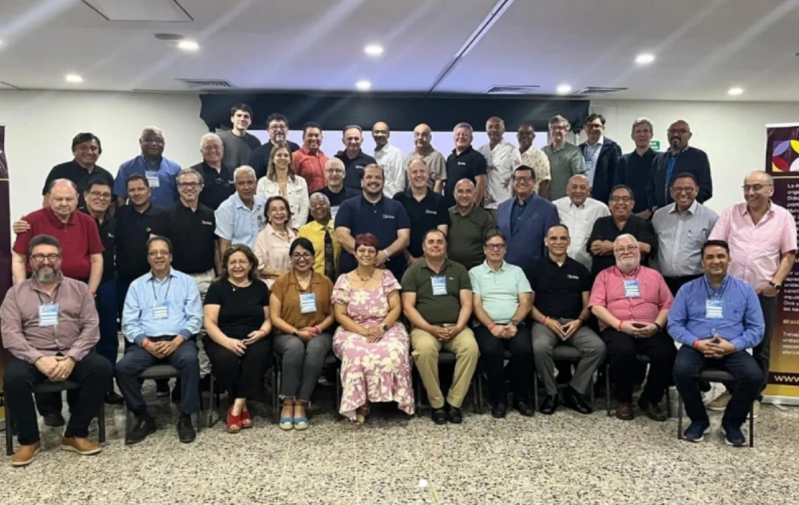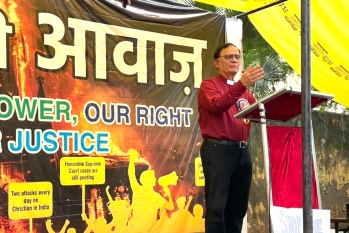
The 12th General Assembly of the Latin Evangelical Alliance (AEL) concluded on Sept. 12 in Cartagena with a clear and forceful message: the evangelical churches of Ibero-America are determined to take a leading role in shaping public life. United in purpose, they pledged to defend religious freedom, the family, and the right to life, while deepening their unity and expanding their social engagement.
The five-day gathering brought together presidents of national alliances, denominational leaders, commission coordinators, and delegates from more than 20 countries under the theme “The Influence of Evangelical Churches in Ibero-America.” Sessions included messages from pastors Ricardo Rodríguez and Andrés Corson, while devotionals were led by Victor Tiburcio of Unilimi, Gabriel Salguero of NaLEC, and Harold Segura of World Vision.
The Cartagena Declaration
The central document of the Assembly was the “Cartagena Declaration: The Influence of the Evangelical Church in Ibero-America,” which highlights both the historical and current contributions of the churches in the region.
The declaration recalls that evangelical communities have been active since the 19th century in education, healthcare, the defense of freedom of conscience, and the preservation of indigenous languages. Today, their influence is reflected in seven key areas:
-
Community growth with social impact: from just 1% of the population in 1910 to more than 20% in 2014, and even surpassing 50% in some Central American countries.
-
Ethical and compassionate commitment: promoting justice and mercy for the most vulnerable.
-
Educational initiatives with Christian moral values and literacy programs.
-
Comprehensive assistance and family restoration, with spiritual, social, and psychosocial support, particularly in the defense of life, children, and youth.
-
Participation in public affairs without partisanship, providing an ethical voice in debates on human rights, justice, and religious freedom.
-
Cultural renewal through faith, including Bible translation into indigenous languages.
-
Community living of faith, creating spaces of hope amid inequality, violence, and moral crises.
The AEL affirmed in the document: “We firmly believe that the Gospel of Jesus Christ continues to be good news for every person, every family, and every city. We renew our mission to be light in the midst of spiritual darkness, salt to prevent decay, and outstretched hands in times of pain.”
The declaration urged churches to “look at the realities of our times with eyes of faith, discerning with spiritual clarity without falling into paralyzing fear or comfortable indifference.” The call is to be “salt that preserves the truth and gives flavor to life, light that illuminates paths in the midst of darkness, prophecy that denounces sin and announces hope.”
The Cartagena Declaration concluded with a charge: “Let this declaration not only be read, but lived.” It invited every congregation to serve as a beacon reflecting the character of Christ and transforming its surroundings, recalling the promise of Zechariah 4:6: “Not by might nor by power, but by My Spirit, says the Lord of Hosts.”
Renewal of Leadership
During the assembly, several AEL board members were reaffirmed and others newly elected, entrusted with guiding the movement at a pivotal moment for Ibero-America. The leadership pledged to enhance the training of leaders, deepen dialogue with public institutions, and amplify the evangelical voice in international forums.
The AEL Board of Directors for the 2025–2027 term includes President Juan Cruz Cellammare of Paraguay, Vice President Cesar Ayala of Guatemala, and Treasurer Henry Nogales of Bolivia. The board members are Julián Hernández of Mexico, César Mermejo of Venezuela, Gabriel Salguero of the United States, and Louder Garabedian of Uruguay.
Originally published on Diario Cristiano, Christian Daily International's Spanish edition.






